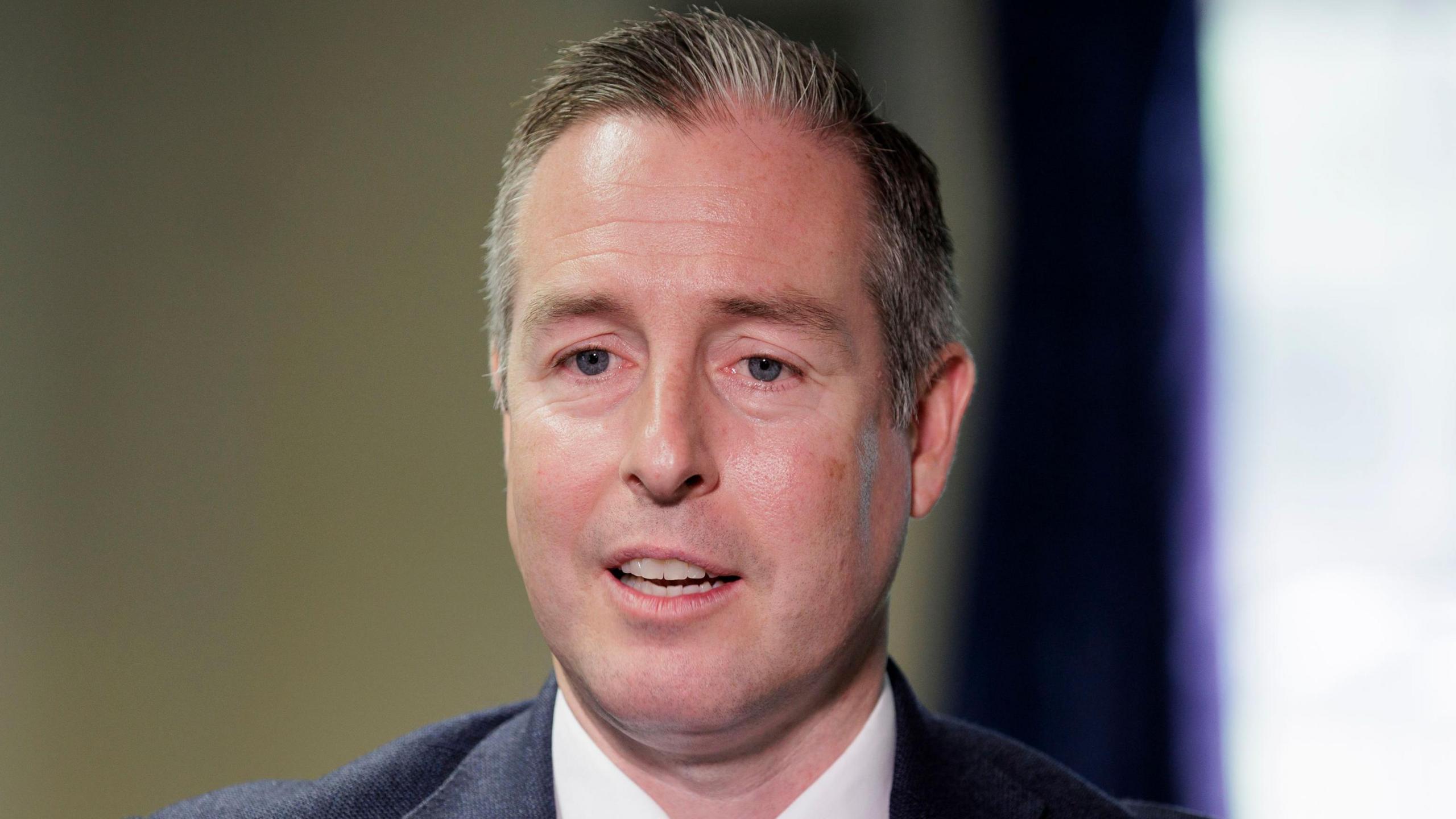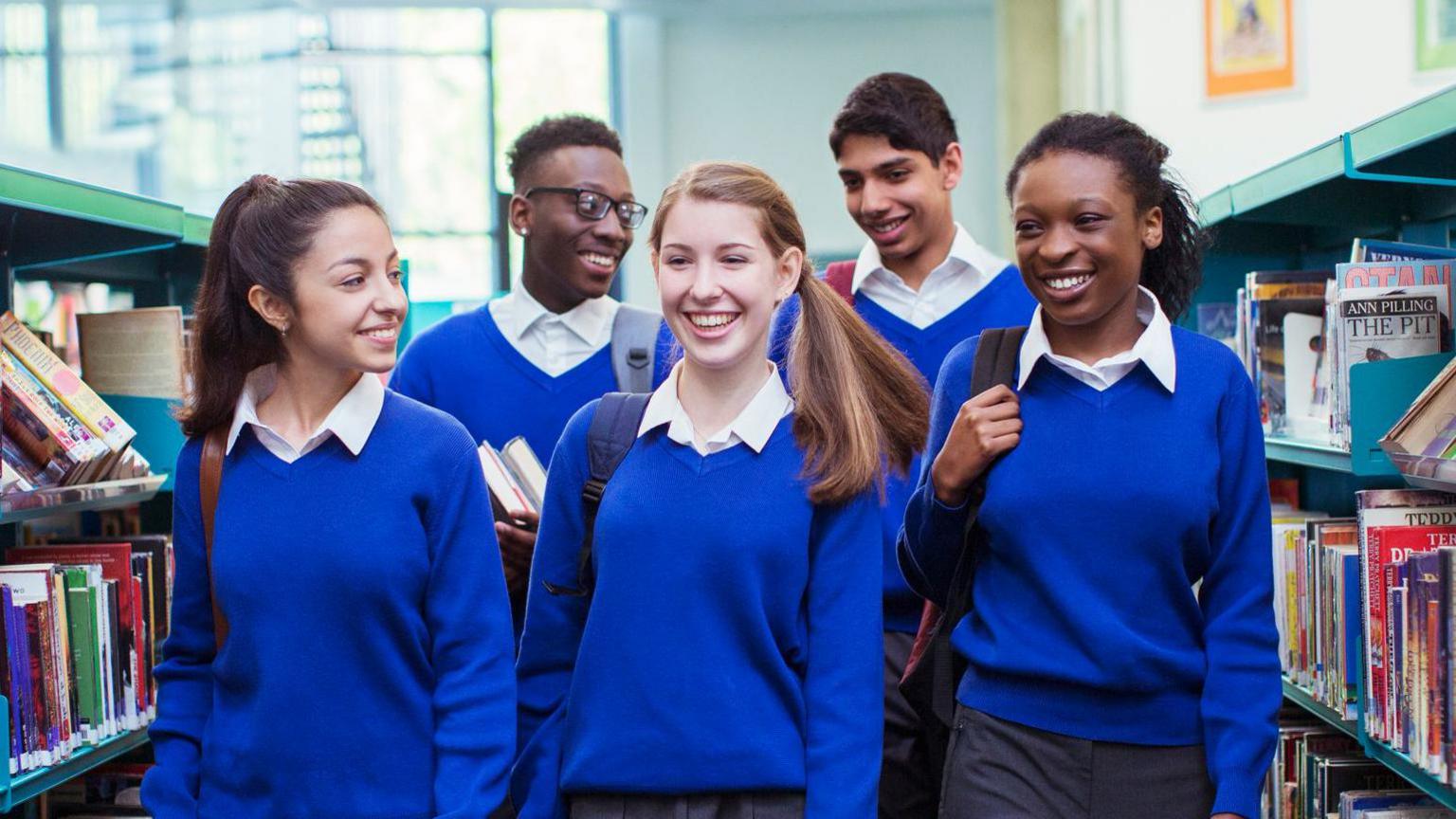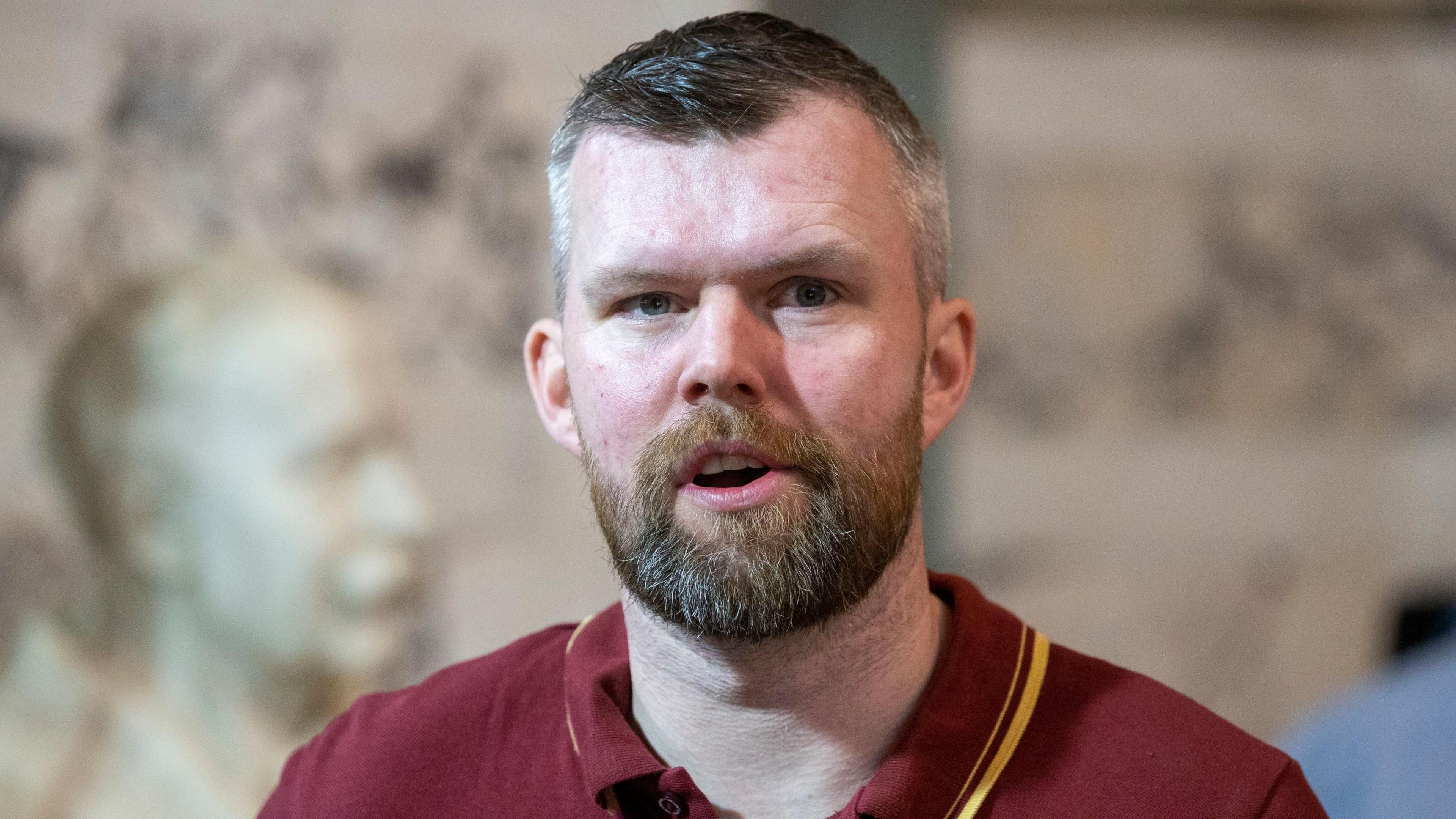Minister says Education Authority 'failing' controlled schools

Education Minister Paul Givan made the comments in the Assembly on Tuesday
- Published
The Education Authority (EA) has "failed controlled schools" and they are the "poor relations" within education, according to the education minister.
Paul Givan made the comments during questions from assembly members (MLAs) in Stormont on Tuesday.
But the NASUWT teaching union official for Northern Ireland Justin McCamphill has described the comments as "shocking".
"It is now incumbent on the minister to set out how exactly he believes the Education Authority has failed controlled schools and the precise impact that this has had on children and young people," Mr McCamphill said.
"Even if true, the answer to the alleged failure cannot be to create further duplication in the education system."
There are more than 500 controlled schools in Northern Ireland, and the majority of their pupils are from a Protestant background.
Givan has proposed a separate management body for controlled schools that could mean they are no longer managed by the EA.
The minister made his comments in response to a question from the DUP MLA Maurice Bradley.
'Equitable, effective support'
There is currently a support body for controlled schools called the Controlled Schools Support Council (CSSC).
However, it currently has no legal powers and, unlike the Council for Catholic Maintained Schools (CCMS), does not oversee the appointment of teachers.
Givan said that a "managing authority" for controlled schools would ensure "equitable, effective support".
He has set up a taskforce chaired by the current head of the CSSC, Mark Baker, to put forward proposals to develop that managing authority.
"Where other schools have their own managing authorities the controlled sector does not, and we need to change that inequality," Givan added.

There are about 500 controlled schools across Northern Ireland
According to figures from the CSSC, there are almost 150,000 pupils in controlled schools.
About 58% of pupils in controlled schools are from a Protestant background, 11% are from a Catholic background and 32% are from "other" backgrounds.
Mr McCamphill questioned the minister's move to establish a separate managing body for controlled schools.
"The minister needs to go back to the drawing board and establish a single overarching employing body which would improve industrial relations, reduce wasteful duplication, promote operational efficiency and ensure the release of funding to support the improvement of ‘frontline’ service delivery," he said.
Helpful measures to 'take place in all communities'
In response to an earlier question from the People Before Profit MLA Gerry Carroll, Givan also said that there was "indisputable evidence that Protestant working-class communities are more educationally disadvantaged than any other community."
Carroll had said that "economic class is a determining factor rather than religion whether young people are regarded as a failure or not".
"The segregated education system hasn't helped either," he continued.
In response, Givan said any measures introduced to help Protestant working class communities in education "would take place in all communities".
"The member would be wrong to infer that somehow there isn't an issue when it comes to community background because there is," the minister added.

West Belfast MLA Gerry Carroll said economic class rather than religion "a determining factor" in whether young people are regarded as failures or not
A number of reports over a number of years have raised concerns about Protestant boys underachieving at school.
Protestant men from low-income backgrounds are also underrepresented on degree courses in Northern Ireland.
However, overall, students from the most well-off backgrounds are twice as likely to enter higher education as those least well-off.
Related topics
- Published3 April 2014
- Published29 October 2022
